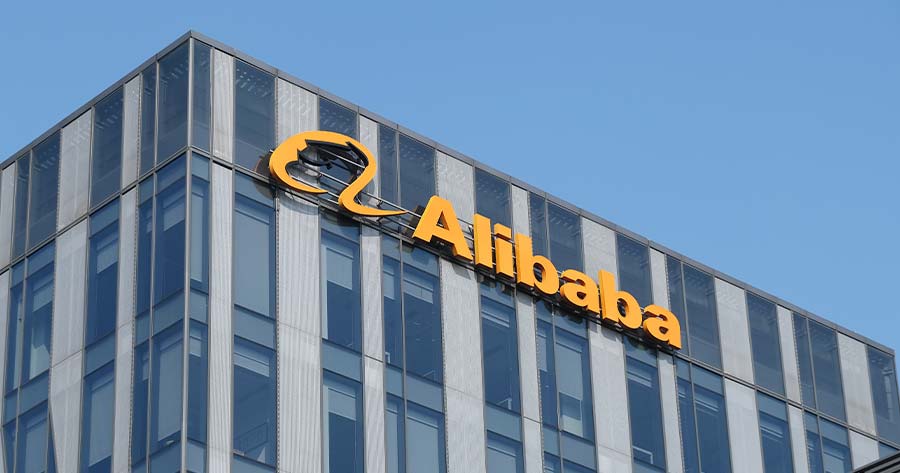Tech
EU Regulators Accuse Meta of Antitrust Violations Over New Ad-Supported Service

Meta, the parent company of Facebook, faced allegations from EU regulators on Monday for failing to comply with the bloc’s landmark antitrust rules concerning its recently introduced ad-supported social networking service. The European Commission criticized Meta’s subscription model, labelling it a “pay or consent” scheme. This model forces users to either pay to use Meta’s platforms without ads or consent to their data being processed for personalized advertising. This ad-supported subscription service was introduced for Facebook and Instagram in Europe last year.
EU Commission’s Preliminary Findings
The Commission’s preliminary view suggests that this binary choice compels users to agree to the combination of their personal data, thereby failing to provide a less personalized but equivalent version of Meta’s social networks. In a statement on Monday, the regulators emphasized that users should have access to a service that utilizes less of their personal data for ad personalization.
Meta’s Response
A Meta spokesperson responded to the allegations by stating that the company’s ad-supported subscription model adheres to the directives of the highest court in Europe and complies with the Digital Markets Act (DMA). “We look forward to further constructive dialogue with the European Commission to bring this investigation to a close,” the spokesperson added. Meta introduced this new model following a ruling from the European Court of Justice last year, which allowed companies to offer an alternative version of their service that does not rely on data collection for ads.
Commission’s Critique
Despite Meta’s justification, the Commission found two key issues with Meta’s ad-supported offering. First, it doesn’t allow users to choose a service that uses less personal data but is still equivalent to the personalized ads-based service. Regulators asserted that users should be able to access an equivalent service with reduced data usage for ad personalization.
Digital Markets Act (DMA) Enforcement
The DMA, enforceable since March this year, aims to curb anti-competitive practices by large digital companies and mandate them to open up some of their services to rivals. Companies found in breach of the DMA could face substantial fines, potentially up to 10% of their global annual revenue, and for repeated breaches, this figure could rise to 20%. For Meta, a breach of the DMA could result in a penalty as high as $13.4 billion, based on the company’s 2023 annual earnings.
Next Steps for Meta
Following the receipt of the EU’s preliminary findings, Meta has the opportunity to defend itself in writing. The Commission’s investigation, launched in March alongside two other probes into tech giants Apple and Alphabet, will conclude within 12 months from the start of the proceedings.
Meta’s compliance with the EU’s antitrust rules remains under scrutiny, as the company navigates these regulatory challenges while attempting to align its business practices with the DMA’s requirements.
Tech
X to stop Grok AI from undressing images of real people

X has announced that its artificial intelligence tool, Grok, will no longer be able to edit images of real people to depict them in revealing clothing in jurisdictions where such activity is illegal, following widespread backlash over the misuse of sexualised AI deepfakes.
In a statement published on the platform, X said it had introduced new safeguards to prevent the Grok account from being used to manipulate photos of real individuals in a sexualised manner. “We have implemented technological measures to prevent the Grok account from allowing the editing of images of real people in revealing clothing,” the company said.
The move has been welcomed by UK authorities, who had previously raised concerns about the tool’s use. The UK government described the decision as a “vindication” of its calls for X to take stronger action to control Grok. Media regulator Ofcom also said the change was a “welcome development”, while stressing that its investigation into whether the platform breached UK laws is still under way.
“We are working round the clock to progress this and get answers into what went wrong and what’s being done to fix it,” Ofcom said, signalling continued scrutiny despite the latest measures.
Technology Secretary Liz Kendall welcomed X’s announcement but emphasised the need for accountability. She said she would “expect the facts to be fully and robustly established by Ofcom’s ongoing investigation”, underlining the government’s commitment to ensuring online safety rules are upheld.
However, campaigners and victims of AI-generated sexualised images say the decision has come after significant harm had already been caused. Journalist and campaigner Jess Davies, who was among women whose images were edited using Grok, described the changes as a “positive step” but said the feature should never have been permitted in the first place.
Tech
Alibaba Opens AI Video Generation Model for Free Use Globally

Chinese tech giant Alibaba has made its latest AI video generation models freely available worldwide, intensifying competition with rivals such as OpenAI.
The company announced on Wednesday that it is open-sourcing four models from its Wan2.1 series, its most advanced AI model capable of generating images and videos from text and image inputs. These models will be accessible via Alibaba Cloud’s Model Scope and Hugging Face, making them available to academics, researchers, and businesses globally.
Following the announcement, Alibaba’s Hong Kong-listed shares surged nearly 5%, continuing a strong rally that has seen the stock gain 66% in 2025. Investors have been optimistic about the company’s growing role in AI and its improving financial performance, buoyed by recent policy signals from Chinese President Xi Jinping supporting the domestic private sector.
Alibaba’s move aligns with a broader trend in China, where companies are increasingly embracing open-source AI. In January, DeepSeek, another Chinese firm, shook global markets by revealing that its AI model was trained at a fraction of the cost of competitors, using less-advanced Nvidia chips. Both Alibaba’s and DeepSeek’s models are open-source, meaning they can be downloaded and modified freely, unlike proprietary AI models such as those developed by OpenAI, which generate direct revenue.
The shift towards open-source AI has sparked debate over whether AI models will become commoditized. While companies like Meta are leading the open-source push in the U.S. with their Llama models, Chinese firms have been particularly aggressive in this space, aiming to drive innovation and build global AI communities.
Tech
VP JD Vance Pledges to Protect U.S. AI and Block Its Weaponization

Vice President JD Vance reaffirmed the U.S. commitment to safeguarding its artificial intelligence and semiconductor technologies, vowing to block efforts by authoritarian regimes to weaponize them.
Speaking at France’s AI Action Summit in Paris, Vance warned that some nations have exploited AI for military intelligence, surveillance, and foreign data manipulation. “This administration will block such efforts, full stop,” he stated. “We will safeguard American AI and chip technologies from theft and misuse, work with our allies and partners to strengthen and extend these protections, and close pathways to adversaries attaining AI capabilities that threaten all of our people.”
While he did not directly name China’s AI model DeepSeek, which has drawn global attention for its competitive performance at a lower cost, Vance criticized heavily subsidized technologies exported by authoritarian states. “We’re all familiar with cheap tech in the marketplace that’s been heavily subsidized and exported by authoritarian regimes,” he said.
In a pointed message to allies, Vance cautioned against collaborating with companies linked to such regimes, arguing it would compromise national security. “Chaining your nation to an authoritarian master that seeks to infiltrate, dig in, and seize your information infrastructure never pays off,” he added.
The U.S. has ramped up efforts to control AI development and chip manufacturing, tightening restrictions on exports to China and strengthening alliances in the tech sector.
-

 News1 week ago
News1 week agoKim Jong Un chooses teen daughter as heir, says Seoul
-

 News4 days ago
News4 days agoPolice Review Private Flights at Stansted Following Epstein File Revelations
-

 Entertainment1 week ago
Entertainment1 week agoTaylor Swift asks US government to block ‘Swift Home’ trademark
-

 News1 week ago
News1 week agoMinnesota Immigration Enforcement Surge to Wind Down as Federal Officials Cite “Great Success”
-

 Entertainment4 days ago
Entertainment4 days agoTech-Inspired Musician Look Mum No Computer to Represent UK at Eurovision
-

 News1 week ago
News1 week agoRubio warns Europe of new era in geopolitics before big Munich speech
-

 News4 days ago
News4 days agoDNA Test Yields No Match in Search for Missing Nancy Guthrie
-

 News6 days ago
News6 days agoHavana’s Iconic Cigar Festival Postponed Amid Deepening Energy Crisis















